
EVALUATION REVIEW
Scope & Guideline
Fostering Critical Discourse in Evaluation Methodologies
Introduction
Aims and Scopes
- Program Evaluation:
The journal emphasizes rigorous methodologies for evaluating programs across sectors, including education, healthcare, and social services, aiming to produce actionable insights that inform policy and practice. - Impact Assessment:
There is a consistent focus on assessing the impacts of various interventions, using quantitative and qualitative methods to measure effectiveness and inform stakeholders. - Methodological Innovations:
The Evaluation Review encourages the exploration of new and existing evaluation methods, including mixed-methods approaches, experimental designs, and advanced statistical techniques. - Interdisciplinary Applications:
The journal publishes research that applies evaluation principles across diverse disciplines, including economics, public health, and education, reflecting the interdisciplinary nature of evaluation work. - Policy Relevance:
A core aim is to bridge the gap between evaluation research and policy-making, ensuring that findings are relevant and applicable to real-world issues.
Trending and Emerging
- Sustainability and Environmental Impact:
There is a growing focus on evaluating sustainability initiatives and environmental impacts, reflecting global concerns about climate change and resource management, which are increasingly relevant to policy makers. - Health and Social Interventions:
Evaluations of health-related programs, particularly in the context of global health crises like COVID-19, have surged, highlighting the need for effective interventions in public health and social services. - Innovative Data Use:
The use of big data, machine learning, and advanced statistical techniques in evaluations is on the rise, improving the accuracy and depth of impact assessments. - Equity and Inclusion in Evaluation:
Emerging themes around equity, inclusion, and social justice are becoming more prominent, emphasizing the need for evaluations that consider diverse populations and address systemic inequalities. - Digital Transformation in Evaluation:
The integration of digital tools and methodologies in evaluation practices is trending, as evaluators seek to leverage technology for data collection, analysis, and dissemination.
Declining or Waning
- Traditional Evaluation Models:
There has been a noticeable decrease in publications focusing solely on traditional evaluation models, as the field shifts towards more innovative and adaptive methodologies that account for complex social dynamics. - Single-Method Studies:
Research employing only one evaluation method is becoming less common, as the trend moves towards mixed-methods approaches that provide a more comprehensive understanding of evaluation outcomes. - Descriptive Studies:
The journal has seen a decline in purely descriptive studies that do not offer insights into causal relationships or impact evaluations, as the emphasis is now on studies that contribute to theory and practice.
Similar Journals

Canadian Journal of Program Evaluation
Advancing the Art of Program EvaluationCanadian Journal of Program Evaluation, published by University of Toronto Press Inc, stands as a vital resource in the field of program evaluation, encompassing a diverse array of topics relevant to researchers, practitioners, and policymakers alike. With a focus on advancing knowledge and promoting best practices in evaluating public and private programs, this journal has gained recognition in the Library and Information Sciences category, achieving a commendable Q2 ranking in the 2023 evaluations, alongside a Scopus rank of #124 out of 280 within its domain. The journal is particularly noted for its commitment to enhancing the quality and effectiveness of evaluations through rigorous research and thoughtful analysis. By engaging with cutting-edge findings and case studies from 2005 to 2023, the Canadian Journal of Program Evaluation contributes significantly to the discourse around program development and assessment. Although it does not offer open access, researchers and practitioners are encouraged to utilize this premium publication to enrich their understanding and application of evaluation methodologies.
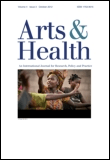
Arts & Health
Unleashing the healing potential of the arts.Arts & Health is a pioneering journal at the intersection of art and healthcare, published by Routledge Journals, Taylor & Francis Ltd. With its ISSN 1753-3015 and E-ISSN 1753-3023, this esteemed journal serves as a vital platform for interdisciplinary studies exploring the transformative effects of artistic practices on health and well-being. With a commendable impact factor and recognition as a Q1 journal in Arts and Humanities and a Q2 journal in Medicine, it is positioned among the top tier of research publications. The journal's scope encompasses a diverse range of topics, facilitating discourse among researchers, healthcare professionals, and policymakers about the integration of arts in healthcare settings. As part of the Scopus ranks, it holds an impressive standing, being in the 88th percentile for Arts and Humanities and the 71st percentile for Medicine, further establishing its credibility in the academic community. Although it does not currently offer open access options, its rich content is invaluable for those looking to deepen their understanding of the synergistic relationship between creativity and health. Engage with Arts & Health to stay at the forefront of this dynamic and impactful field.
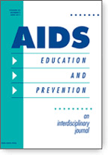
AIDS EDUCATION AND PREVENTION
Elevating Discourse on HIV/AIDS EducationAIDS Education and Prevention is a distinguished journal dedicated to the exploration of strategies for HIV/AIDS education, prevention, intervention, and policy. Published by Guilford Publications Inc, this journal has been a pivotal resource in the fields of Health (social science), Infectious Diseases, Medicine, and Public Health since its inception in 1989, and continues to be influential through 2024. With its respectable placement in the Q2 category across multiple disciplines, it offers high-impact research and practical insights that are essential for researchers, healthcare professionals, and students alike. Although not an Open Access journal, its compelling content and strict peer-review processes ensure that published works maintain high academic standards. The journal's contributions are integral in addressing the challenges surrounding HIV prevention and education, fostering a deeper understanding and knowledge that can lead to effective community responses.
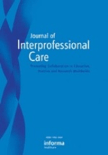
Journal of Interprofessional Care
Transforming healthcare delivery through teamwork.The Journal of Interprofessional Care, published in the United Kingdom, is a premier scholarly outlet dedicated to advancing the field of interprofessional collaboration and healthcare delivery. With a notable impact factor signifying its relevance and influence, this journal holds a distinguished position in the Q1 category of Medicine, ranking #77 out of 636 in the broader field of General Medicine according to Scopus. Since its inaugural publication in 1986, it has served as a vital platform for researchers, practitioners, and students who seek to explore the synergies among various healthcare disciplines, ultimately aiming to improve patient outcomes and care integration. The journal’s rigorous peer-review process ensures high-quality contributions that enhance our understanding of collaborative practices in healthcare. Though currently not an open-access journal, it continues to provide a wealth of knowledge for those invested in interprofessional education and practice.
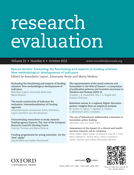
RESEARCH EVALUATION
Empowering practitioners with impactful research insights.RESEARCH EVALUATION, published by Oxford University Press, stands as a prominent journal in the fields of Education and Library and Information Sciences. With an impressive impact factor, it has earned a distinguished position with Q1 rankings in both categories, reflecting its significant contributions to the scholarly community. The journal, which has been operational since 1991, offers a platform for innovative research and critical analysis that supports the advancement of evaluation methodologies within these disciplines. Its rigorous peer-review process ensures the publication of high-quality, impactful studies that inform practitioners and policymakers alike. Although it operates under traditional access, its esteemed reputation and indexed ranking—#192 in Education and #42 in Library and Information Sciences—underscore its appeal to researchers, professionals, and students seeking to stay at the forefront of research evaluation practices. For those committed to enhancing educational outcomes and improving library and information services, RESEARCH EVALUATION is essential reading in the quest for excellence and insight.
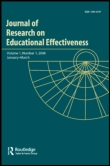
Journal of Research on Educational Effectiveness
Transforming education through impactful research.The Journal of Research on Educational Effectiveness, published by Routledge Journals, Taylor & Francis Ltd, stands as a leading voice in the field of education research, with an impressive impact factor reflective of its scholarly significance. Since its inception in 2008, this prestigious journal has provided a platform for innovative research that focuses on the efficacy of educational practices and interventions. With a Q1 ranking in Education and a commendable position within the top 75th percentile of Scopus rankings, it serves as a vital resource for researchers, educators, and policymakers committed to enhancing educational outcomes. The journal's rigorous peer-review process ensures high-quality publications that are accessible to a global audience, fostering collaboration and knowledge exchange in the pursuit of effective educational strategies. Engage with cutting-edge research and contribute to the ongoing dialogue shaping the future of education.

Journal of Research in Education Sciences
Fostering innovation in the science of education.Journal of Research in Education Sciences is a premier open-access journal dedicated to advancing the field of educational research. Published by NATL TAIWAN NORMAL UNIV, COLL INT STUDIES & SOCIAL SCIENCES since 2009, this journal contributes to the dissemination of knowledge in educational sciences, making significant strides in addressing contemporary educational issues. With its ISSN number 2073-753X and an established presence in Taiwan, it actively engages scholars and educators by providing a platform for rigorous peer-reviewed research. Despite its comparatively recent establishment, it holds a respectable Q3 classification in the Education category and ranks within the 26th percentile among its peers in Scopus, reflecting its growing influence in the academic community. The journal not only emphasizes innovative educational practices but also fosters discussions on policy implications and educational reforms, making it a vital resource for anyone committed to improving education systems globally. With easy access to research findings via its open-access model, the Journal of Research in Education Sciences seeks to bridge the gap between research and practice, encouraging collaboration among researchers, professionals, and students alike.
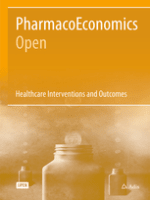
Pharmacoeconomics-Open
Empowering Healthcare Decisions Through Open ResearchPharmacoeconomics-Open, an esteemed journal published by SPRINGER INT PUBL AG, is a vital resource for scholars and practitioners in the fields of health policy and pharmacology. Since its transition to an Open Access platform in 2017, the journal has aimed to democratize access to valuable research, fostering innovation and collaboration globally. With notable rankings in the 2023 Scopus indices—including Q2 in Health Policy and both categories of Pharmacology—Pharmacoeconomics-Open engages with pressing issues in health economics, providing insights into cost-effectiveness analyses and healthcare decision-making. The journal’s commitment to high-quality, peer-reviewed articles ensures that it remains a significant player in advancing knowledge and understanding within its disciplines, serving as an essential forum for researchers, policymakers, and students alike.

Voluntas
Driving Innovation in International Management and Public AdministrationVoluntas, published by Springer, is a leading international journal committed to advancing the fields of Business and International Management, Geography, Planning and Development, Public Administration, Sociology, and Political Science. With an impressive impact factor and ranking in the Q1 category across multiple disciplines, the journal serves as a vital resource for scholars and practitioners seeking to explore the intersections of voluntary action, social responsibility, and public policy. Covering a converged period from 1990 to 2024, Voluntas not only publishes high-quality empirical research but also seeks to disseminate theoretical insights that promote understanding and engagement with pressing societal issues. Researchers, professionals, and students alike will find a wealth of knowledge that enhances their understanding of the complexities of voluntary organizations and their impact on the world today. For access options and more information, please visit the publisher's website.
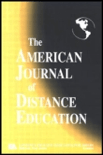
American Journal of Distance Education
Exploring the future of education beyond borders.The American Journal of Distance Education, published by ROUTLEDGE JOURNALS, TAYLOR & FRANCIS LTD, stands as a premier publication in the field of online learning and distance education. With an ISSN of 0892-3647 and an E-ISSN of 1538-9286, this journal has been at the forefront of research since its inception in 1987, delivering insights into emerging trends and methodologies in educational technology. Nestled in the United States, it enjoys a commendable reputation with an impact factor that reflects its significance, as indicated by its category quartiles: Q2 in Computer Science Applications and Q1 in Education, along with impressive Scopus rankings placing it in the top percentiles of its categories. The journal's mission is to foster scholarly discourse and present empirical research that addresses the challenges and innovations in distance learning environments. Researchers, educators, and students alike will find valuable information that contributes to the advancement of this rapidly evolving field.